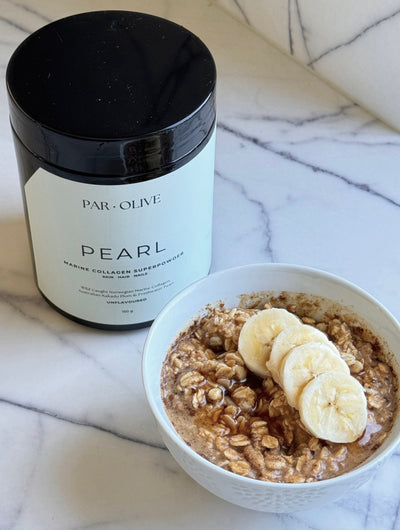How To Support The Body Through The Peri-Menopausal Transition

Menopause often gets a bad rap, unfairly so as it is actually peri-menopause that is the culprit for the myriad of uncomfortable symptoms associated with menopause.
Peri-menopause is the 2-12 years before menopause, and is a time of great transition. It is often referred to as second puberty, due to fluctuating levels of hormones that result in a range of different symptoms.⠀⠀⠀⠀⠀⠀⠀⠀
Menopause, on the other hand, is a life phase that occurs 1 year after a woman's last period. Unlike peri-menopause, this phase is generally a time of minimal symptoms as hormones have flatlined.⠀⠀⠀⠀⠀⠀⠀⠀
During peri-menopause, we see an initial increase in oestrogen (followed by fluctuating oestrogen levels) and a decline in progesterone, which can lead to many of the common peri-menopausal symptoms including heavy periods. Progesterone declines by roughly 75% between the ages of 35 and 50 years, therefore supporting progesterone production is an important part of peri-menopausal symptom management.
Common symptoms of peri-menopause include:
- Hot flushes
- Mood changes
- Insomnia + night sweats
- Changes in menstrual cycle (longer bleed, irregular cycles, shorter cycles)
- Vaginal dryness & atrophy
- Low libido
How To Support The Body Through The Peri-Menopausal Transition
Optimising nutrient status through the diet can help to support the peri-menopausal transition and assist with symptom management.
Protein: the eventual decline in oestrogen during menopause is linked to decreased muscle mass and bone strength, so ensuring adequate protein intake is important. Dietary sources of protein include eggs, meat, fish, beans and legumes.
Collagen: declining oestrogen in the menopausal period has a significant impact on the skin’s collagen production, with approximately 30% of skin collagen lost in the first 5 years after menopause. Supplementing with collagen therefore helps to mitigate some of this impact on the skin, as well serve as a source of protein to support muscle mass, bone strength and optimise weight during menopause.
Vitamin E: increase vitamin E rich foods such as sunflower seeds, almonds & avocado
Vitamin B6: increase intake of foods rich in vitamin B6 including spinach, bananas, walnuts, beef, salmon & chicken
Magnesium: increase intake of magnesium rich foods to support the nervous system, regulate sleep & increase insulin sensitivity. These include dark leafy greens, cacao, nuts & seeds
Vitamin D + Calcium: a decline in bone health (due to declining oestrogen levels) is common in menopause, therefore ensuring adequate vitamin D and calcium status is important for supporting bone health. Food sources of vitamin D include eggs, fatty fish, ghee and mushrooms, while food rich sources of calcium include sesame seeds (or tahini), collard greens, sardines with bones, yoghurt & cheese
Phytoestrogens: phytoestrogenic foods help modulate oestrogen levels, therefore reducing symptoms of both high and low oestrogen states. Incorporating 1-2 tablespoons of ground flaxseeds can help to modulate oestrogens. Caution should be taken when incorporating phytoestrogens for those with a history of oestrogen dependent cancers.
Stress Management: incorporating stress management strategies such as movement, breathwork, meditation, mindfulness and time in nature help to support the peri-menopausal transition
Minimise dietary triggers: minimise intake of foods and beverages that may exacerbate symptoms (particularly hot flushes). These include caffeine, alcohol & spicy foods
Nutritional & Herbal Medicine: there are specific nutrients and herbs that we can utilise on the peri-menopause journey to modulate hormones, reduce symptoms and improve quality of life. As always, it is important to consult your healthcare practitioner before self-prescribing to ensure treatment is suitable for your unique needs.
Through implementing various nutritional & lifestyle changes, it is possible to support the body by easing the transition into menopause, minimising symptoms and celebrating this transformative phase in a woman’s life.



